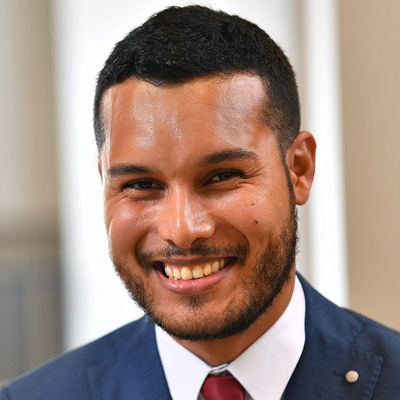Eduardo J. Valdivia

Eduardo is a Master of Global Affairs student at the Keough School. He has worked as field and verification officer with the United Nations Mission in Colombia and as policy advisor on human rights and business with the Permanent Mission of Costa Rica to the United Nations. Through his career he has developed and implemented community engagement strategies with civil society groups and communities in their transition from conflict to recovery, with close attention to gender, ethnic, and human rights perspectives. He believes in the importance of public participation and citizen engagement as an effective tool to support peace efforts and capacity-building at the grassroots level.
“Disagreeing with something, and not standing against it, turns us into collaborators around those issues."
How did you first become interested in civil or human rights?
My interest in human rights comes from my increasing awareness of, and experiences with, oppressive social systems that benefit few people and prevent others the chance to achieve their full potential. My existence at the intersection of being a person of color, male, and having a sexual orientation that dissents from heteronormativity has deeply shaped me. Growing up, daily experiences with gender-based violence, homophobia, racism, patriarchy, and classism shaped my understanding of systemic discrimination and social justice as they relate to human rights. This understanding compelled me to take action on the issues I disagree with. Disagreeing with something, and not standing against it, turns us into collaborators around those issues.
From what or whom have you drawn inspiration?
I draw inspiration from the strong cis and transgender Latina women who have shaped my life while growing up, and who helped me see the world with new eyes. I also draw inspiration from the fierce Black transgender women who fought to make the LGBTIQA+ rights movement what it is today.
What is the specific emphasis of your work? What issues do you feel most determined to address?
My research lays at the nexus of strategies for peacebuilding and human rights. Currently, I am working on a report that assesses the reintegration program of former Revolutionary Armed Forces of Colombia – People’s Army combatants. Reintegration is a process that must reflect beneficiaries’ needs and interests at its core and which requires the incorporation of intersectional lenses in its implementation. Above all, reintegration processes must aspire to enable ex-combatants to fully participate in, contribute to, and enjoy economic, social, cultural, civil, and political development.
As such, I am committed to working against persistent, harmful, stereotypical imagery, stigma, and misconceptions that lead to exclusion and discrimination of survivors of human rights violations, in particular of former combatants, as well as to challenge peacebuilding approaches favoring strategies for state-building and militarization over holistic human security approaches.
What obstacles do you perceive as the most challenging in your work?
The most challenging obstacle I have encountered in my work has been addressing politicization and militarization approaches masked as peacebuilding measures in the implementation of the Colombian peace accord. As peacebuilding and human rights practitioners, we must understand that peacebuilding and State-building are two different approaches.
What paths forward do you find most promising?
Peacebuilding must aim at transforming the root causes of conflict, ‘the structural violence,’ not just at stopping direct violence. Precisely, it is in this transformational process where peacebuilding and human rights come together since both approaches deal with processes of long term political and institutional transformation, as well as with the patterns of inequality and power imbalances prevailing in conflict-affected contexts.